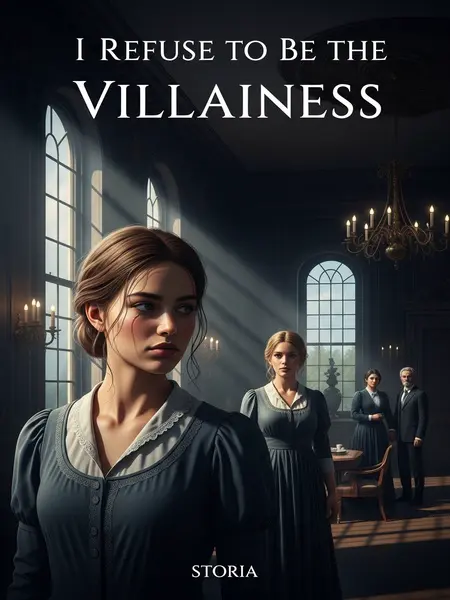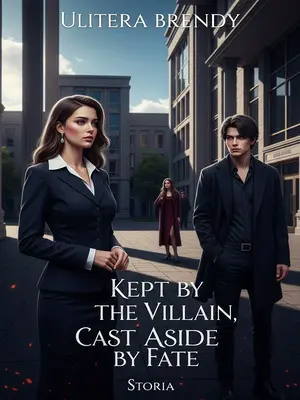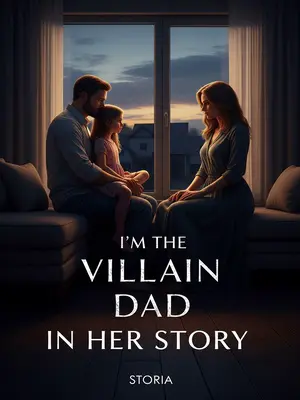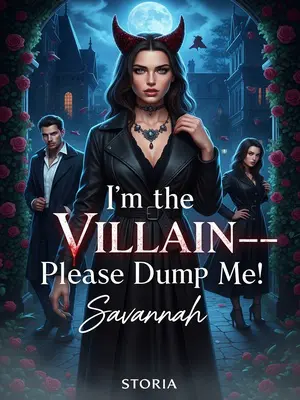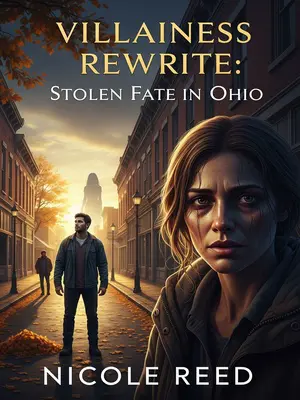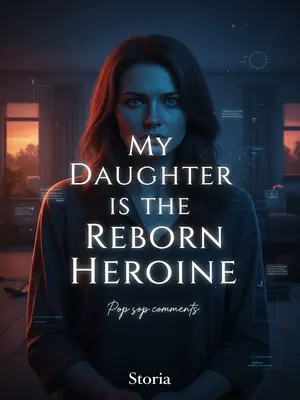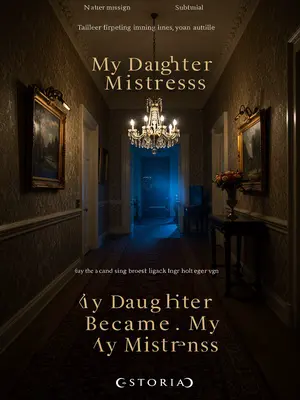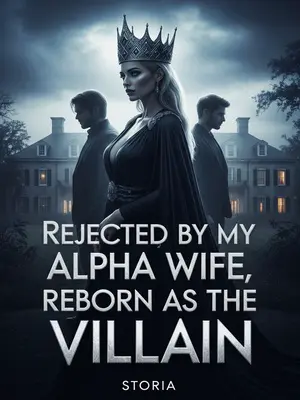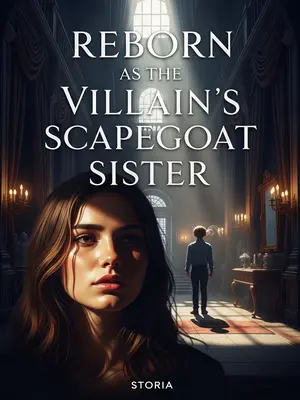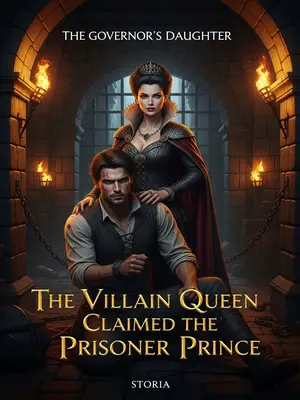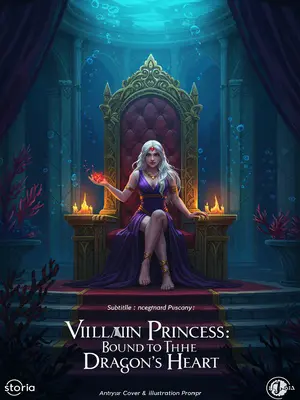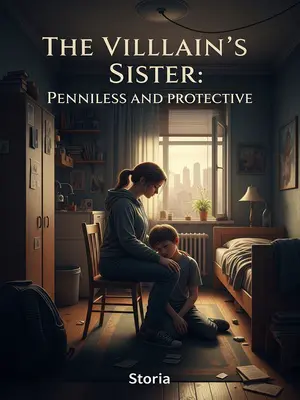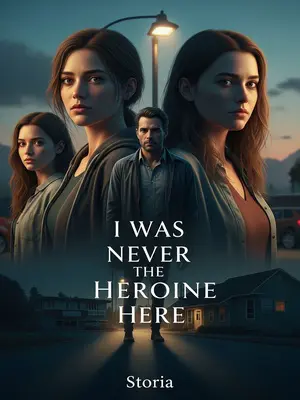Chapter 1: The Villain’s Prophecy
They're about to start recruiting women for public office, and just like that, my father and brother decide my right hand needs to be broken. Just like that.
The news hits me like a punch to the gut. In the sticky July heat, the air feels heavier. It presses down on my chest, making it hard to breathe. My mind spins, caught between disbelief and this cold, creeping fear. I can almost hear the cicadas outside, their relentless buzz a cruel soundtrack to this moment.
All because the woman they keep around the house—someone they both dote on—doesn’t have the grades or skills, and they’re scared she’ll be devastated when she fails the selection.
It’s twisted logic, but it’s theirs. The house always seemed to revolve around Savannah. She was the sun, and we were just orbiting. I never thought they’d go this far, though. It’s like something out of a bad TV drama, but here I am, living it.
The July sun blazes overhead. I’m so stunned, cold sweat soaks my shirt.
I stand frozen on the porch, the boards creaking under my feet. My heart hammers in my chest, and for a split second, I wonder if I’m about to faint. The sunlight glares off the white siding, making everything look overexposed, surreal.
Again, the plot points Mom warned me about are coming true, every last detail, just like she said.
I remember her voice, soft but insistent, echoing in my head. It’s like déjà vu, except every time it happens, it hurts more. I want to scream, to shake someone and demand an explanation, but I just stand there, dumbstruck.
I decide to run. But I don’t get far—my ex-fiancé shows up right then.
I barely make it to the front gate before Carter’s old Chevy pulls up, dust swirling in its wake. He steps out, all easy confidence and practiced charm, blocking my way with a smile that doesn’t reach his eyes.
"Evelyn, your father and brother are right. Women should be happy at home, keeping things running, raising kids. Running for office? Showing up at City Hall? What sense does that make?"
His words are slick as oil, sliding right over my skin but leaving a greasy residue. I want to spit back, but I can feel the walls closing in—Dad, Lucas, and Carter, all circling like they’re entitled to my future.
With the three men closing in, I just laugh:
"What are you all so scared of?"
My voice comes out sharper than I intended, but it feels good—like the first breath after being underwater too long. I meet their eyes, one by one, daring them to answer. Of course, they don’t.
My mom? She says she’s an immortal who landed here from another world. Yeah, really.
She used to tell me that when I was little, usually when she tucked me in at night. Her stories were always a little out there, like she knew things no one else did. Sometimes I’d catch her staring out the window at the moon, humming a tune I never recognized.
For as long as I can remember, besides regular schoolwork, Mom made me read a certain storybook every day.
It was old, the cover faded and the pages soft from use. She said it was important, that I should never forget the lessons inside. I’d sit cross-legged on the living room rug, tracing the illustrations with my finger while she watched, her eyes distant.
I never understood why, but I always listened.
I didn’t dare question her. Maybe it was the way she looked at me—like she knew more than she let on. Or maybe I just wanted to make her proud, to be the daughter she hoped for.
By the time I turned fourteen, I could recite that book backwards.
Honestly, it became a kind of party trick. Sometimes, at family gatherings, Mom would nudge me to show off. I’d rattle off passages while aunts and uncles clapped, and Mom would just smile, her secret safe between us.
On my birthday, Mom sent everyone away and did my hair herself.
She braided it with lavender ribbons, her fingers gentle but sure. The whole house smelled like vanilla and fresh flowers. It felt like a ritual, sacred and quiet, just the two of us in the golden afternoon light.
Then she told me she was a woman who fell into a book, and the story in that book described the world I live in.
She said it so matter-of-factly, like she was telling me what was for dinner. I stared at her, waiting for the punchline, but she just looked at me, eyes full of something I couldn’t name.
But I’m not the heroine. I’m the villain—the one who does all the wrong things and ends up ruined.
The words landed like stones in my stomach. I wanted to protest, to say she was wrong, but her face was so serious, so sad, that I couldn’t.
She said that even though she raised me to be kind, generous, and poised, the moment the beloved heroine showed up, I’d lose all sense, turn jealous, bully her just because I could, and try to frame her.
It sounded impossible. I’d never been cruel, not on purpose. But Mom’s voice was steady, her hands never stopping their gentle work in my hair. I felt a chill run down my spine.
In the end, my father would break my hands and feet himself.
My full-blood brother would lock me in the backyard shed, make me fight with dogs for scraps.
And my childhood friend—my cousin, who was supposed to marry me—would think that wasn’t enough.
He’d throw me into the worst bar in town, hang a sign to bring in drunks and vagrants to humiliate me.
…
Her words left me frozen. I felt my face go numb, hands shaking in my lap.
I, Evelyn Harper, the pampered daughter of the prominent Harper family in Maple Heights—how could I end up like that?
I thought of the house on Oak Street, the manicured lawns, the family portraits lining the hall. My life was supposed to be safe, predictable. I was supposed to be untouchable.
I tried to sound confident. "Besides, they treat me so well." But even I could hear the doubt in my voice.
Mom sighed deep: "Because they haven’t met the heroine yet."
Her sigh was heavy, full of old regrets. She smoothed my hair, her touch lingering. "People change, Evelyn. Sometimes all it takes is one new person to turn a whole world upside down."
She knew I didn’t believe her, so one night she took me to a little rental house on Oak Street. We didn’t tell anyone.
It was a little place, nothing like our home—shabby furniture, creaky floors, the faint smell of mothballs. We watched from behind faded curtains, my heart pounding in my chest.
I saw with my own eyes my father, Robert Harper—always upright, always courteous, a respected city councilman—holding a girl young enough to be his daughter, comforting her softly.
He looked different—gentler, almost tender. The girl, Savannah Lin, seemed fragile in his arms, her head tucked under his chin. I felt something crack inside me.
That was her. The heroine. Savannah Lin.
She looked nothing like I’d imagined. Not some dazzling beauty, but ordinary—except for the way Dad looked at her, like she was made of glass and starlight.
On the way back in the car, I buried my head in Mom’s lap, feeling weak and numb.
The engine hummed, and Mom stroked my hair, humming that same unfamiliar tune. I stared out the window, trying not to cry.
"Mom, what about you? Can’t you protect me?"
The words came out small, desperate. I hated how young I sounded, but I couldn’t help it.
She couldn’t.
She shook her head, her eyes bright with unshed tears. "Some stories are bigger than us, honey. Sometimes all we can do is try to find a way out."
Because when the story really started, she’d already died of illness.
She squeezed my hand, her grip firm. She looked me in the eye. "I wish I could stay, Evelyn... But the story’s already written. My part ends here."
The plot was set, and now she had to "disappear."
She looked out the window, her face set. "I have to go. It’s the only way. But I’ll make sure you have a chance. Promise me you’ll take it."
"Evelyn, from tomorrow on, you have to face everything alone. They say you can’t fight fate, but trust me—Mom will find a way to get you a better future."
She pulled me close, her voice trembling. "You’re stronger than you think, kiddo. Don’t let them break you."
She looked me in the eyes, making sure I remembered—
She held my face in her hands, her gaze fierce. "Listen to me: when the beloved heroine enters the family, no matter what happens, you can’t be jealous."
When the beloved heroine enters the family, no matter what happens, I can’t be jealous.
Only if I keep my cool and stay out of their way might I survive.
I nodded, dead serious.
I swallowed hard, determination settling in my chest. "I promise, Mom. I won’t let them win."
So one night, with the air thick with dew, Mom slipped out to the backyard pond. An "accident," everyone would say.
The frogs croaked, and the moon hung low. I watched from my window as she slipped outside, her silhouette fading into the mist. There was a splash, then silence. My heart pounded so loud I thought it would wake the whole house.
That pond flows into the creek out back, which runs all the way out of town.
It was clever, really. The current was strong, fast enough to carry her far. She’d planned every detail, right down to the weather.
She planned everything, using this to fake her death and escape.
She left her favorite scarf on the bank, a silent goodbye. I pressed my face to the glass, tears streaming down, hoping she’d make it out okay.
Dad, when he heard, was "devastated."
He put on a show for the neighbors, pacing the porch, wringing his hands. His voice cracked as he called the sheriff, but I saw the way his eyes darted, calculating.
My brother, Lucas Harper, rushed back from college.
He barreled through the front door, backpack slung over one shoulder, panic written all over his face. He hugged Dad, then me, squeezing too tight.
They drained the pond, then searched the creek for days.
The whole town got involved—flashlights bobbing in the dark, search dogs barking, the air thick with the smell of wet earth and worry. I kept my head down, playing the part of the grieving daughter.
Finally, they set up a memorial service, announcing to everyone that Mom had passed away.
